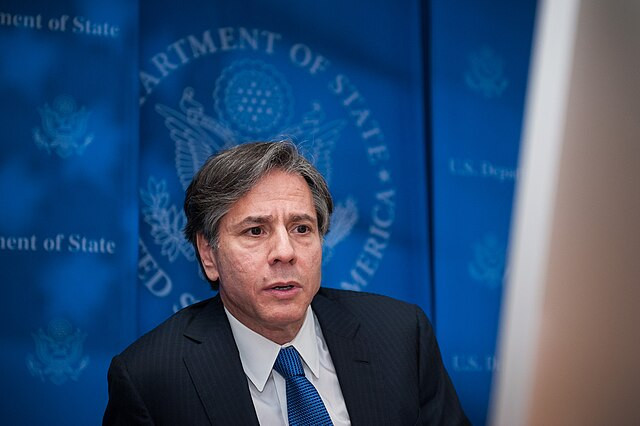The United States has entered into direct contact with Hayat Tahrir al-Sham (HTS), the Syrian militant group that led the overthrow of President Bashar al-Assad's regime, Secretary of State Antony Blinken confirmed on Saturday. The announcement, made during a diplomatic tour in Jordan, underscores Washington's cautious but significant engagement in Syria's evolving political landscape.
"We've been in contact with HTS and with other parties," Blinken told reporters in Aqaba, Jordan, after talks with representatives from Arab nations, Turkey, the European Union, and the United Nations. The U.S., along with its allies, has been grappling with how to interact with HTS, which remains designated as a terrorist organization by both Washington and London.
The discussions culminated in a joint statement outlining principles for Syria's political transition. These include a commitment to an inclusive, Syrian-led process, the protection of minority rights, the dismantling of chemical weapons stockpiles, and ensuring Syria does not serve as a base for terrorist activities. "No one has any illusions about how challenging this will be," Blinken said, adding, "There's something incredibly powerful at work: a Syrian people determined to shape a better future."
One of the priorities for the U.S. in its engagement with Syria's new leadership is locating Austin Tice, an American journalist who disappeared near Damascus in 2012. Blinken emphasized the urgency of the matter, saying it remains a "top priority." Tice's whereabouts are unknown despite the release of thousands of prisoners following HTS's seizure of Damascus. Obaida Al-Arnaot, a spokesperson for Syria's interim government, expressed efforts to locate Tice but acknowledged no progress had been made.
As Syria undergoes a significant transition, Turkey announced the reopening of its embassy in Damascus after a 12-year closure. Turkish Defense Minister Yasar Guler also stated that Turkey is prepared to provide military training to Syria if requested. However, Guler cautioned that Russian forces, despite reports of some withdrawals, appear committed to maintaining a presence in Syria. "I don't think the Russians are going to leave," Guler said. "They'll do everything they can to stay."
Concerns persist regarding HTS's past affiliations with Al-Qaeda and the implications for Syria's minority groups, particularly the Kurds. In an effort to allay fears, HTS leader Ahmed Al-Sharaa, also known as Abu Mohammad al-Jolani, issued a statement emphasizing inclusivity. "The coming Syria will have the Kurds as its foundations, and we will live together in it," Al-Sharaa said. He pledged that Kurds and other minorities would not face injustice.
HTS, which once bore the Al-Qaeda banner, has sought to rebrand itself as a legitimate governing authority, a move that has drawn skepticism from Western governments and regional actors alike. The U.S., however, appears to be cautiously considering a shift in its approach, sparking hopes for eventual relief from decades of crippling sanctions imposed on Syria.
The shifting dynamics in Syria have also drawn Israel's attention. Overnight airstrikes, reportedly carried out by Israeli forces, targeted weapons depots and air defense systems in Syria, according to the Syrian Observatory for Human Rights. Israel has expressed concern that weapons previously controlled by the Assad regime could fall into extremist hands.
Meanwhile, France announced plans to send a diplomatic team to Syria to assess the situation. "France's willingness to support the Syrian people remains strong," the French foreign ministry said in a statement. European governments, though largely supportive of Assad's ousting, are weighing the risks and benefits of engaging with the HTS-led government.




